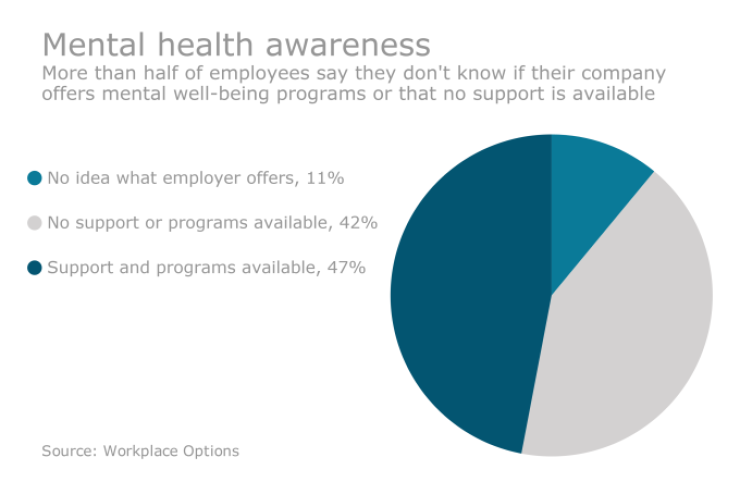CLEARWATER, Fla. — Employers, there’s a big chance your employees have a serious case of “monkey brain.”
The condition is growing, and its symptoms — feeling stressed, constant multitasking, having difficulty making decisions, not having enough time to get things done — is wreaking havoc on the workforce.
“This is why researchers are starting to go after this,” Libby Rapin, a former HR manager who is now a mindfulness and meditation coach, said Tuesday during the International Foundation of Employee Benefit Plan’s Health Benefits Conference and Expo. “We can’t get tasks done; we aren’t feeling fulfilled; we’re making mistakes more than we should.”
And employers, too often, are making it worse.
“Companies are rewarding the hustle. They are rewarding employees for working for crazy long hours,” she said. “[They] are contributing to the problem, and it’s leading to mental health problems.”
One in five people have a mental illness, according to the National Institute of Mental Health. One in three working Americans report being stressed on the job, according to the American Psychological Association. And nearly 70% of employees are not engaged at work, according to Gallup.

These staggering statistics, Rapin said, are a good reason for smart employers to look into a growing — albeit largely missed — wellness component: mindfulness.
Mindfulness training, according to Rapin, helps employees build skills to manage stress, build resilience and work on other emotional intelligence skills needed to cope with changes. The practice also encourages employees to be present in the moment and to focus on singular tasks at a time rather than multitasking.
“Mindfulness is so important because when we are mindful we are doing the most valuable work because we’re focused,” Rapin said. “And when we are mindful, we put our whole heart and soul in the task at hand, and we feel valued. It’s so simple.”
In a 2017 survey from the National Business Group on Health, 35% of employers said they were rolling out mindfulness trainings, and 26% said they plan to in the future. Aetna, Patagonia and Salesforce, Rapin said, are among the companies that offer the benefit to employees. Still, she said, significantly more should offer it.
“The reality is, if we have employees that spend more than 40 hours in the workplace,” she said, “it’s employers’ responsibility to help them with their emotional and mental health.”
Mindfulness practices help employees enhance focus, become more productive and better manage mild depression, anxiety and other common mental health problems, she said. They also can help promote job satisfaction and facilitate better performance.
If that didn’t get your attention: Companies that implement mindfulness can see a 200% ROI, Rapin claims.
Aetna, for example, has been a proponent of the practice since implementing mindfulness-based wellness programs in 2010. The company even opened a mindfulness center in its Hartford, Connecticut, headquarters in 2017.
Aetna says the practice has helped it lower healthcare costs significantly for its 49,000 employees. In 2012, as Aetna’s mindfulness programs ramped up, its healthcare costs fell 7%, Rapin said. Aetna’s reported that a highly stressed employee costs the company an extra $2,000 per year in healthcare when compared to their less-stressed peers.
Aetna calculated that productivity gains alone for adding mindfulness were about $3,000 per employee.
Rapin cautioned HR managers, however, that mindfulness programs need to be administered carefully and conscientiously. They need to be accessible and convenient, she said, and employees should be reminded to access them on a regular basis.
“There are very simple things you can do to make a difference in your organization,” she said. “But it shouldn’t be a one and done. Mindfulness needs to be in your company’s DNA — woven in and out.”





